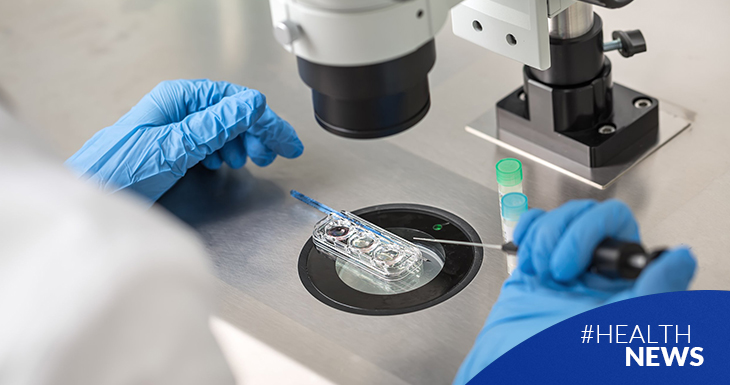Every year, tens of thousands of babies are born as a result of In Vitro Fertilization (IVF), in which several eggs are fertilized outside the mother's body and then an embryo is chosen to be transferred to her uterus.
For several years, expectant parents have been able to screen their embryos for rare genetic defects, such as cystic fibrosis or Tay Sachs disease. The decision to have a child can be difficult, even under the best of circumstances. For those with a family history of debilitating illness, it is often heartbreaking.
How to answer the most important question: Will my child be healthy?
For those parents, a San Francisco startup offers a solution: Genetic testing of their embryos so they can select the one with the lowest risk of disease. "We help couples have healthy babies," says Orchid Inc., about its tests for schizophrenia, Alzheimer's, cancer and seven other diseases.
With this new method, genetic tests provide each embryo with a risk score, that is, an estimate of the chances that the embryo will develop a specific disease. After reviewing the scores, parents can select the embryo they wish to implant.
Scientists assure that the question is not so simple
Peter Kraft, a Harvard epidemiology professor, helped develop the so-called polygenic risk scores that Orchid says are the backbone of their testing. The expert is concerned about the way the firm uses them, raising the possibility that, for example, parents may select an embryo deemed to be at low risk of one disease, without understanding that it is at higher risk of another. . “Part of my concern is how forthright the company is when advising parents about the potential benefit of these procedures,” Kraft said.
Other widely available preconception carrier screening tests can tell parents if their children may have certain inherited disorders caused by mutations in a single gene. But these monogenic diseases, which include cystic fibrosis, sickle cell anemia, and Tay-Sachs disease, are relatively rare.
The Orchid test, on the other hand, looks for some much more common diseases influenced by some combination of multiple genes, often numbering in the hundreds. For that reason, a number of experts think the polygenic risk score isn't quite ready for such popularity yet, and worry that companies like Orchid may be overselling their technology to eager couples.
Gabriel Lázaro-Muñoz, a bioethicist and lawyer at Baylor College of Medicine (USA), who has studied polygenic risk scores, points out that the possibility of analyzing and selecting embryos for a wide range of traits drifts into the field of eugenics. "We should have a serious conversation about how to use this technology in our society," says the expert.
Embryo testing will be available later this year. Those interested can now add their names to a waiting list. "I'm excited to give couples the chance to create their own luck, to push their children's future trajectory toward health, no matter what cards they've been dealt," said Noor Siddiqui, founder of Orchid, when announcing the availability of tests.
The subject is controversial, how far can we humans play with positive eugenics? This means preserving the characteristics of the best elements that made up the hegemonic part of society. If we can substantially reduce the health risks to the next generation with reproductive technologies, is that radical and immoral?
FUENTE: www.gov.il


